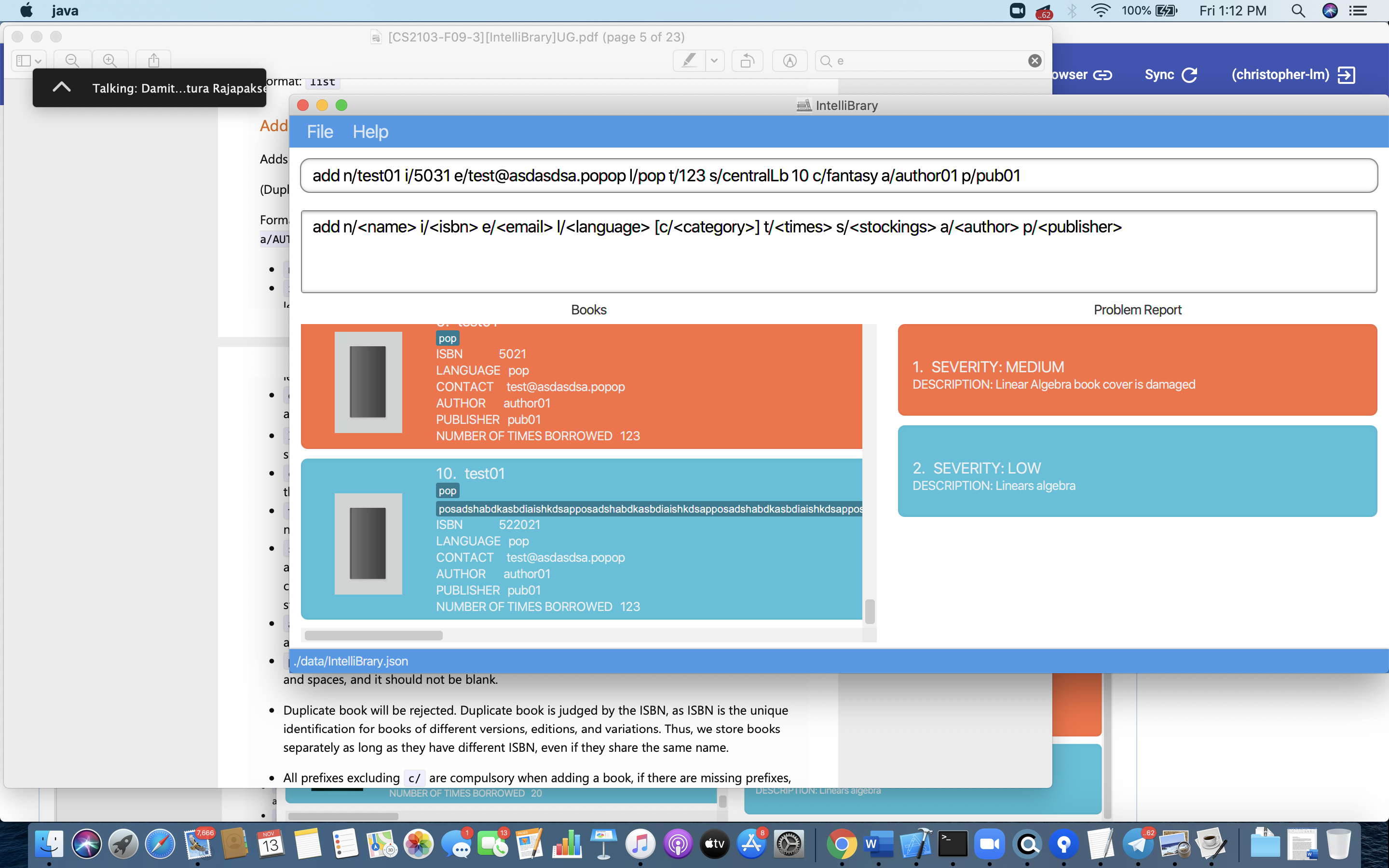Team's Response
Hi, thank you for your report! : ) We are glad and grateful that you have spent the effort to try out and test our products. We appreciate your effort in trying to help us further polish our product. We understand that you might have some confusions in some of our features. We would love to explain and elaborate more on this. However, after careful consideration and discussion, we decide to reject this problem.
Firstly, we consider the severity level was given too high and we decide this problem to be Severity VeryLow. By referring to the CS2103 website standard closely, we decide to change the severity level of this report to VeryLow. We have stated in our UG that our product is targeted at users who can type very fast. Thus this does not affect the usage of a user who can type very fast using CLI. Therefore, according to the CS2103 website standard, the severity shall be VeryLow.
Secondly, we decide to reject the problem, because in add command in AB3, all compulsory attributes for a Person in AB3 also need to be included when entering the add command. This follows the same design pattern as AB3.

Thirdly, initially we have already considered the implementation as u suggested in our development process as well, and we have written it down in our DG and explained that we do not want to add different attributes seperately. We decide to add them together at one time during the add command.

Fourthly, we also want to further elaborate more and another deeper reason why we adopted this implementation. From the viewpoint of database, as nearly all attributes are compulsory for a book except categories. Thus, they have a not-null constriant on them. By enforcing to add all of them at a time during the add command, we can easily enforce the constraint. But if we omit some attributes in add command and allow to add them later on, the constraint integrity of the data can not always be preserved. In addition, the add command is actually treating the insertions of all attributes as one stored procedure in database. Any failure of any attributes constraints will lead to rollback of the whole command, which preserves the data integrity by following the ACID principle of Transaction.
With the given the reasons, our team decided to reject the issue. Thank you again for your response, and our team hopes that you can understand our decision.
Items for the Tester to Verify
:question: Issue response
Team chose [response.Rejected]
- [ ] I disagree
Reason for disagreement: [replace this with your reason]
:question: Issue severity
Team chose [severity.VeryLow]
Originally [severity.Medium]
- [ ] I disagree
Reason for disagreement: [replace this with your reason]
No details provided.
Seems unrealistic to add a book requiring such a long command and only the c/ parameter can be omitted.